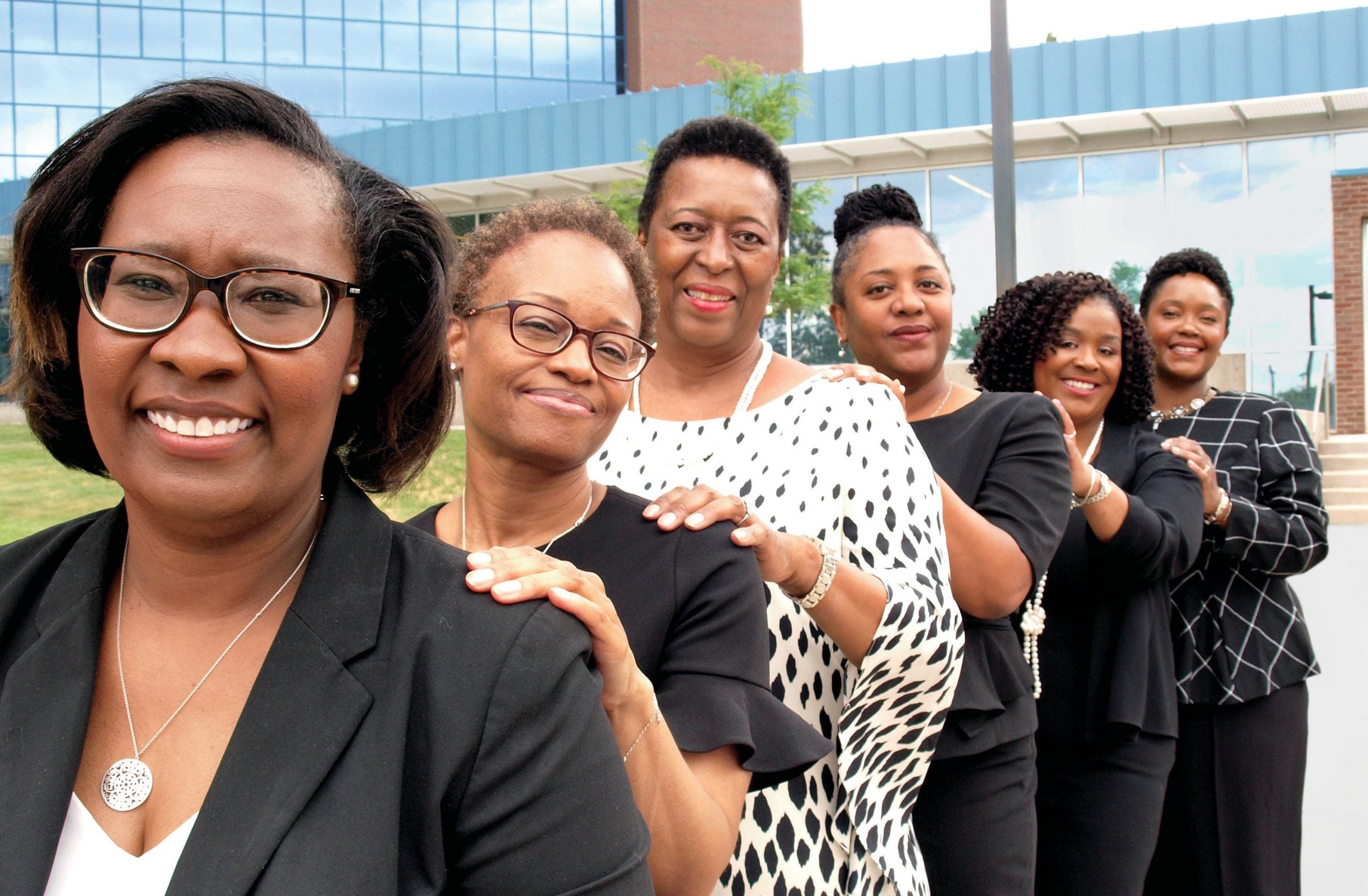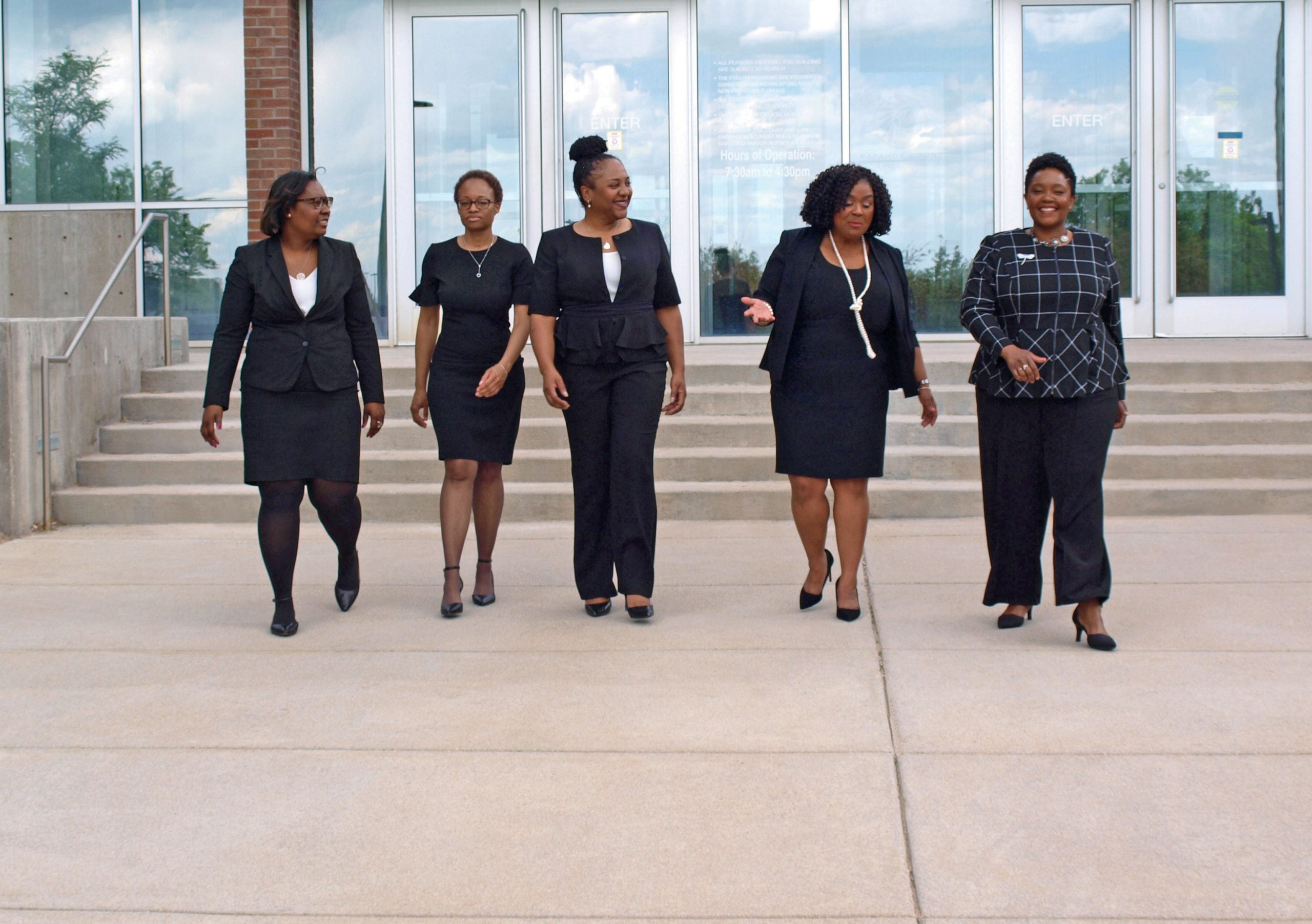
Within seconds of wrapping up a long-awaited phone call from a representative of the Colorado governor’s office last spring, Jill Dorancy excitedly dialed up her parents in Brooklyn, where she grew up. Dorancy was still in shock as she shared the news with her folks, both of whom had immigrated to the United States from Haiti as asylum seekers and later became American citizens.
Now their daughter had achieved a new milestone: Dorancy told her parents she would officially be made Colorado’s newest district court judge on July 1, 2020. “My mom was thrilled, and she started crying too,” recalls Dorancy, “Then I called my dad and told him the news in Haitian Creole. He said, ‘What do you mean?’ And I was like, ‘Papi, it means I made it! I’m a judge!’ ” Dorancy, who most recently litigated oil and gas cases for a Denver firm, says the weeks since that May 15 call have felt “surreal” and dreamlike.
Adding to her sense of wonder is the awareness that her achievement is historic. She is the fifth Black woman to be appointed to the statewide bench by Colorado Governor Jared Polis since he took office in January 2019. He has chosen more Black women judges than his 42 predecessors combined. Polis’s judicial appointments will also set a new record for the highest number of Black women serving concurrently on Colorado’s statewide judiciary—bringing the total number of Black women judges to eight, not counting magistrates, who preside over courts but don’t have the full judicial authority of judges. ‘
Colorado’s diversity is our strength.”
—JARED POLIS, GOVERNOR OF COLORADO
“This is the kind of leadership that really gives you hope,” says Dorancy, a divorced mother of two teenagers. “I’m honored and humbled to have been appointed by a governor who is committed to ensuring diversity on the bench.” In a statement provided exclusively to ESSENCE, Polis agreed on the importance of a truly diverse judiciary: “I am honored to appoint several highly qualified and dedicated Black women to serve in Colorado’s judicial branch—it’s about time! I am committed to building a Colorado for all, which is why we need more people of color in positions of leadership and represented in our government, in order to truly reflect our community.”
To many, this unprecedented and undeniable moment is an exciting, if somewhat surprising, milestone for a state that is 84 percent White and has a mere 4 percent Black population. It’s a place more likely to conjure images of picturesque snow-capped mountains, ski resorts and legal marijuana than groundbreaking diversity benchmarks. “It’s not the first place that people
from outside the state would think of as diverse,” agrees Pax Moultrie, 40, a former county attorney who previously clerked for two justices. “This is an example of what happens when people in leadership positions embrace and value diverse talent. If it can happen here in Colorado, it can happen anywhere!”
Polis’s appointments also stand out because Black judges especially Black women judges—have historically been few and far between in statewide courts in Colorado. Former Governor John Hickenlooper, for example, appointed a total of two Black women during his eight years in office. “Colorado’s diversity is our strength, and I am proud of the forward-minded approach my legal team and our administration have made thus far,” says Polis, a Democrat who made history in January 2019 as the nation’s first openly gay governor. “But there is more work to be done to ensure there is more diversity on the bench and in our justice system.”
We’re five Black women, but we all bring something different to the table.”
—SAMORREYAN “SAM” BURNEY, COLORADO JUDGE
The governor kicked off his appointments in October 2019 with the selection of Frances Johnson for the 4th Judicial District Court in Colorado Springs, making the former magistrate the first Black woman appointed to a district court position of general jurisdiction. Polis followed up in November 2019 with Nikea Bland, who became the first Black woman appointed to a Denver district court of general jurisdiction. “It’s 2020, and there shouldn’t be any Black firsts left, but here we are,” says Bland, a married mother of two young sons and a former public defender and private practice defense attorney. “I’m just glad to see we are finally moving forward. It’s progress.”
This past February Polis tapped Moultrie for the Denver Juvenile Court, with news of Samorreyan “Sam” Burney’s appointment to the 4th Judicial District County Court in Colorado Springs following in April. And at Dorancy’s swearing in July, she became one of eight Black women currently serving among Colorado’s more than 160 judges. “I hope that the message being sent in Colorado and across the country is that we Black women shouldn’t be overlooked,” says Burney, an Orlando native and former prosecutor.

“We’re qualified, we add value, and we’re a benefit to the system—not just by our presence but because of the diverse experiences, backgrounds and perspectives that we all bring. “We’re five Black women, but we each bring something different to the table. Aside from the fact that we’re enhancing inclusivity and diversity in the state’s judiciary, we all deserve to be here.” Johnson agrees that the appointments mark a turning point for Colorado. “It’s difficult for a society, for a community, to claim that the legal system is fair when people go in front of judges and don’t see the makeup of the community reflected there,” says the former court magistrate. “I think Governor Polis is very much aware of that. So I think it’s a positive thing—not only his awareness but also his commitment to leading change. It not only reflects his mind-set but also that of our state.”
I am very happy about this, but my question is, why did it take so long?”
—CLAUDIA JORDAN, RETIRED JUDGE
Scott Evans, president of the Sam Cary Bar Association (SCBA), Colorado’s Black bar organization, says the appointments are indeed noteworthy and are the result of recent diversity initiatives. “This is the direct result of the efforts of Denver County Court Judge Gary Jackson, a dedicated champion for diversity on the bench in Colorado,” explains Evans, a commercial litigation attorney. “He has remained in contact with Governor Polis, as well as previous Colorado governors, on this issue. To his credit, Governor Polis has been made aware of this problem and has been willing to address it. He has definitely come through in a big way.”
The gravity of the groundbreaking moment is not lost on the Honorable Claudia Jordan, a former public defender who became Colorado’s first Black woman judge in 1994, when Denver’s first Black mayor, Wellington Webb, appointed her to the Denver County Court. Four years later, in 1998, Karen Ashby was tapped for the Denver Juvenile Court, becoming the first Black woman appointed by a Colorado governor. It would be nearly 14 years more before Cheryl Rowles-Stokes joined them in 2013, becoming only the second Black woman appointed by a Colorado governor to a statewide court.
“I am very happy about this, but my question is—and always has been—why did it take so long?” says Jordan. “It is definitely a time to rejoice. I am glad it’s happening now, but I don’t want it to stop. Everyone wins when diversity is championed on the bench.” Jordan, who retired in 2014 and is now a private practice attorney, says the recent appointments bring back memories, both positive and not, from her 20-year tenure.
She recalls, for example, how some lawyers would challenge her authority in court and how police officers openly read newspapers in the jury box during her traffic court days. And once, a White juror sized her up during jury selection, commenting, “Well, you don’t look like a judge,” to which Jordan immediately retorted, “What exactly does a judge look like?” “I think I helped make some important changes during my time, and I am confident that these women will also do the same,” says Jordan now. All five appointees say they’re hopeful that their presence will also help to illuminate the work still to be done, including the recruitment of more Latinos, Asians, women and others from underrepresented, diverse backgrounds to the bench.
For example, there are still no Black judges on the state appellate courts, which include the Colorado Supreme Court and the Court of Appeals. “So we stop and celebrate only for a moment, as we continue to close this diversity gap in the Colorado judiciary,” says former SCBA president Terraine Bailey. As for Dorancy, she remains optimistic about her and her fellow appointees’ future on the Colorado bench. “Yes, we’re Black women and there’s Black Girl Magic, but it’s important not to get lost in that,” she says. “We’re not all monolithic. We are all very different people, and it’s those differences that help make us special and uniquely qualified to serve.”
